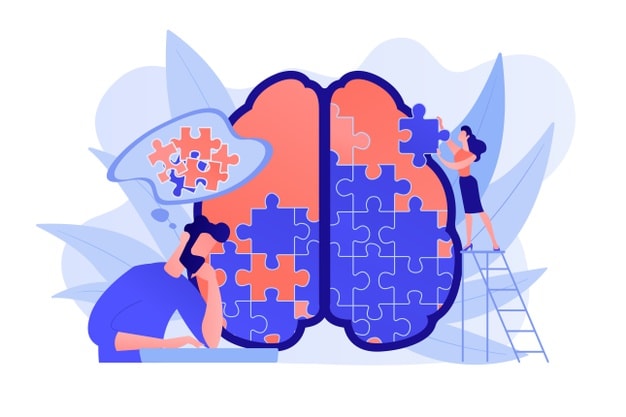A psychological contract is defined as a mutual understanding of the employer and employee about mutual expectations.
Table of Contents
Explanation
The psychological contract is different from a regular written contract between the employer and the employee. It is not a hard copy of the document but a mental document that both employer and employee sign internally.
It is a set of unwritten agreements regarding the expectations of both the employer and the employee. Apart from the regular psychological contract, there are also emotionally stronger attachments, which are long-term contracts. These contracts could specify growth opportunities in the future in exchange for a long-term commitment by the employee.
The primary advantage of having a psychological contract is maintaining a positive relationship between the employer and the employee on a mutually agreed set of rules. It focuses on the humanitarian aspect of the working relationship than a commercial one.
A psychological contract is formed over time and adapts and evolves to the culture of the organization. They are also considered as promises in everyday transactions and interactions in the offices.
Importance of Psychological Contract
Employer well communicates the psychological contract to the employee. Sometimes it could be reversed as well. The rules set in the psychological contract are to be followed by both the parties to maintain the contract. The agreement should be transparent, and there should not be any hidden message or agenda relating to it.
The contract is primarily created to foster transparent and smooth relations between the employee and employer. The psychological contract is said to nurture and flourish the relationship of employer and employee beyond business.
Long-lasting and trustworthy relationships flourish between both. That is to say; it happens when both employer and employee stay loyal to the agreement’s terms.
Following is an example of a Psychological Contract
An employee applies to a company for a particular position. However, the company thinks that the employee requires training for some time, and after the training period is over, he may be eligible for the position.
The employer offers a job to the candidate with the condition that only after completing the said training can he be employed to join the organization. This is not written in the offer letter, but it is mentioned verbally, which is nothing but a psychological contract.
The psychological contract is essential to get things done without interruption of unnecessary paperwork than the approvals and possible expenses. Psychological contracts nurture positivity in teams and team members. They increase productivity by offering positive motivation to the employees bound by the psychological contract.
Psychological contracts are utilized to fill holes so that employers can keep and retain highly skilled and professional employees with promises. Promises are not written on paper to avoid the presence of any traditional contact, but they are described and understood implicitly.
Sometimes the psychological contract is present between the manager and his immediate subordinate. The psychological contract offers flexibility and time-saving implementation of things that could take days or even weeks to get approved and implemented.
For example, a manager can directly talk with his subordinates about getting a big order against which the manager will give a big raise. Such a thing will take weeks to get approved, not to mention, involve multiple people. Instead, the manager chose a psychological contract to get the job done immediately. If the employee stays honest with his words and gets the order, the employer should remain honest to his word and try to increase as much increment as possible.
Development of Psychological Contract
The psychological contract is continually evolving in the workplace. They are changed and refined as and when needed by the employer and the employee. In the above example, the manager can ask the employee to fulfill one more order against which he will try to get a bigger increment. This is in addition to the first order which he had promised.
Therefore modifications are normal for the psychological contract. Sometimes things that are not said should be taken for granted in the psychological contract. Since there is no definition or wording of the contract, many things are open to interpretation. As long as the final result is achieved, the commitment remains intact.
The employee will put his efforts to get a specific job done against which the employer has to provide security, recognition, and whatever else was promised to the employee.
A casual talk between the employer and the employee in a cafeteria or in the office or even on the phone is enough for the psychological contract. Dedication and commitment from the employee are expected against the psychological contract commitments.
When Psychological Contracts are not Fulfilled
The trust and loyalty between the employer and the employee are severely affected if the contract is breached. Both of them believe that it is the other’s duty to stick to the contract and feel that the other has failed to fulfill their obligations against the contract.
Since there are unwritten rules in the psychological contract, fulfilling and not fulfilling both can be tricky. There is extreme resentment between the employer and the employee for not fulfilling the contract.
The first reaction from the employee is demotivation and dissatisfaction. The employee may question the employer for not fulfilling the agreement. The employee may exhibit negative behavior and deliberately perform some malicious or deviant activities, which will not be either in his favor or in the employer’s favor.
On the other hand, if an employee does not fulfill the contract, the same negativity will be there from the employer. The employer will develop a negative attitude towards the employee, which will be evident in various things like delayed increment, constant queries, longer approval times than others, etc.
The ideal way to get through the situation is that the party who could not fulfill the contract should honestly acknowledge that the contract has been violated, and relevant coping strategies should be promised.
This should not again turn out like a psychological contract, and the coping strategies should be fulfilled as promised. Sometimes the relationship between the employer and the employee balances of again after some time, and at other times, it does not.
Problems of Psychological Contract
There are many hurdles in the psychological contract.
Sometimes the employee may not agree with specific terms and conditions of the contract because of many differences. These differences can be cultural or generational or any other. Generational differences mean that there could be different views on the rewards and recognition by the employer and the employee. The perspectives of both may not match, which will lead to certain differences.
As much as possible, a common ground is found and defined before going ahead with the psychological contract.
Personal agendas could also dampen the psychological contract. Sometimes the employer or the employee may take certain things for granted about the other, which will not be excepted by everyone. This will also lead to false assumptions and possible violations of the contract.
The views of both employer and the employee must be matched before the implementation of the psychological contract. Because, if their views do not match, the result and expectations after achieving the contract on both of them will be different.
This is why it is determined that the contract should be as transparent as possible. When either party feels that they have not been respected in the contract, it will lead to underperformance, underproductivity, and demotivation. It can be on either or both sides. Therefore, human resource departments must get involved and pay attention to the employee and the employer’s expectations.
Strengthening the Psychological Contract
Transparency and equality are crucial in the psychological contract, and it is expected that both sides fulfill it. To create a healthy psychological contract, both of them should be fulfilled. If any party detects a possible breach shortly, they should inform the other one about it and make necessary adjustments.
Sometimes the contract may change between the process. Whatever is the reason, both of them should be transparent to each other while turning the contract because it is easier to fix the contract rather than get it breached.
Psychological contracts are considered to be valid in many companies because of increasing competition and a fast-moving business environment.
Managing Psychological Contract
A psychological contract is easy to breach rather than an employment contract. To ease the tension, it is to be ensured that there are common grounds. Assumption between employers and employees is to be avoided as much as possible. If need be, the psychological contract is to be turned into a proper written agreement. However, it does not have to be an official document, but a general expectation list which is to be encouraged amongst the employees, written on a paper, works just fine.
Usually, the HR department and talent management department can do it easily by allocating a set of incentives to both the employer and the employee. As long as there is no ethical compromise or an organization’s culture is not breached in any way, the Psychological contract will be valid and can be fulfilled.
Psychological contracts are crucial in freelancing jobs, and the nature of the job is changing every day; thereby, the psychological contract is gaining more and more importance.
A rigid psychological contract does get the job done, but flexible psychological contracts surely get the job done. The flexibility should not be seen as a compromise in the psychological contract but rather a necessity and an unwritten operating procedure.
Advantages of Psychological Contract
Psychological contracts are motivating to the employees and lead to positivity in the organization. They reinforce the cultural and organizational values of the employees and instill teamwork.
As long as both parties communicate the mutual expectations openly, there is very little chance that the psychological contract will be breached. The contract not only improves the performance of the employees or a team but enhances the company’s future.
Conclusion
Psychological contracts are becoming more and more relevant in today’s changing job environment. Apart from providing a positive push to the employee, they are fast and can be implemented easily. However, being transparent and honest is essential for the success of the psychological contract.
Liked this post? Check out the complete series on Human resources



